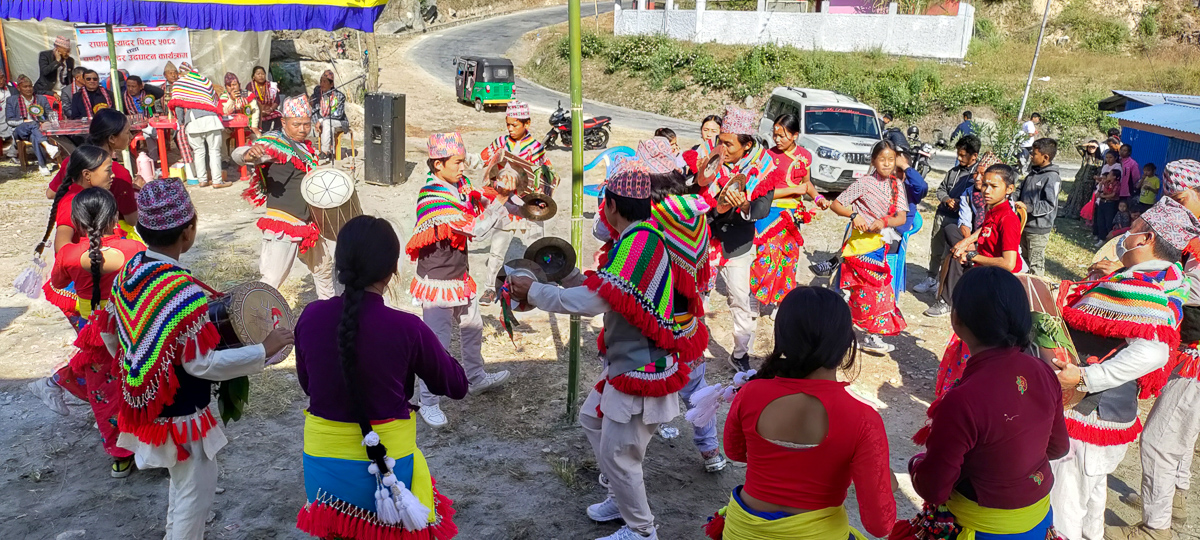

The Sakela Udhauli festival atmosphere is sweeping the Kirat settlements in the eastern parts of the country. The largest festival of the Kirat community is celebrated by dancing and singing for 15 days from the full moon day in the month of Mangsir (Nov/Dec) as per the lunar calendar.
The folk music of Sakela can be heard echoing in the Kirat settlements throughout this period with the playing of the Dholjhyamta drums and cymbals. The revelers can be seen dancing along with traditional steps and following the customary rituals to the throbbing drum beats and cymbals. This year the festival started with fanfare and associated rituals on Thursday.